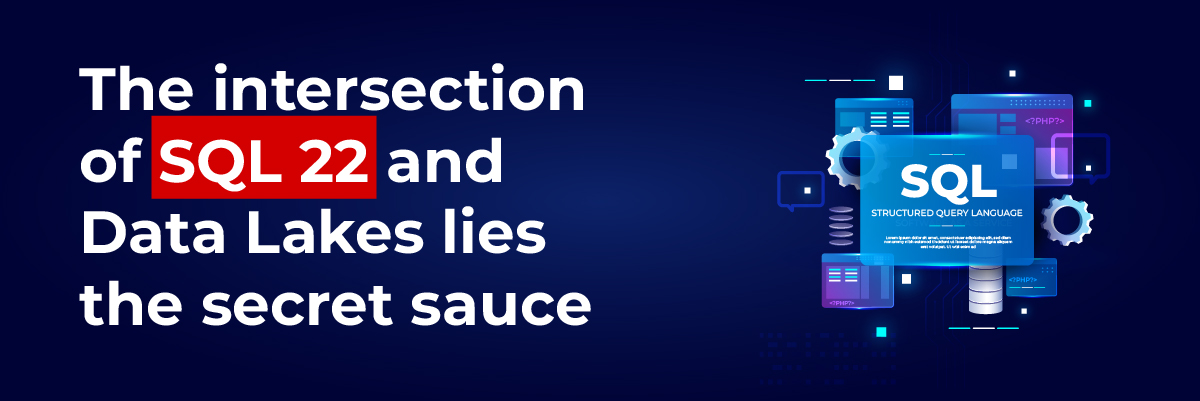
The intersection of SQL 22 and Data Lakes marks a significant milestone in the world of data management and analytics, blending the structured querying power of SQL with the vast, unstructured data reservoirs of data lakes.
At the heart of this convergence lies portable queries, which play a crucial role in enabling seamless data access, analysis, and interoperability across diverse data platforms. They are essential for data-driven organizations.
Portable queries are essentially queries that can be executed across different data platforms, regardless of underlying data formats, storage systems, or execution environments. In the context of SQL 22 and Data Lakes, portable queries enable users to write SQL queries that can seamlessly query and analyze data stored in data lakes alongside traditional relational databases. This portability extends the reach of SQL beyond its traditional domain of structured data stored in relational databases, allowing users to harness the power of SQL for querying diverse data sources, including semi-structured and unstructured data in data lakes.
Every query will not run the same in SQL SERVER as in a data lake, but it allows existing SQL Admins to be functional.
The importance of portable queries in this context cannot be overstated. Here’s why they matter:
1. Unified Querying Experience: Whether querying data from a relational database, a data lake, or any other data source, users can use familiar SQL syntax and semantics, streamlining the query development process and reducing the learning curve associated with new query languages or tools.
2. Efficient Data Access and Analysis: Portable queries facilitate efficient data access and analysis across vast repositories of raw, unstructured, or semi-structured data. Users can leverage the rich set of SQL functionalities, such as filtering, aggregation, joins, and window functions, to extract valuable insights, perform complex analytics, and derive actionable intelligence from diverse data sources.
3. Interoperability and Integration: Portable queries promote interoperability and seamless integration across heterogeneous data environments. Organizations can leverage existing SQL-based tools, applications, and infrastructure investments to query and analyze data lakes alongside relational databases, data warehouses, and other data sources. This interoperability simplifies data integration pipelines, promotes data reuse, and accelerates time-to-insight.
4. Scalability and Performance: With portable queries, users can harness the scalability and performance benefits of SQL engines optimized for querying large-scale datasets. Modern SQL engines, such as Apache Spark SQL, Presto, and Apache Hive, are capable of executing complex SQL queries efficiently, even when dealing with petabytes of data stored in data lakes. This scalability and performance ensure that analytical workloads can scale seamlessly to meet the growing demands of data-driven organizations.
 5. Data Governance and Security: Portable queries enhance data governance and security by enforcing consistent access controls, data lineage, and auditing mechanisms across diverse data platforms. Organizations can define and enforce fine-grained access policies, ensuring that only authorized users have access to sensitive data, regardless of where it resides. Furthermore, portable queries enable organizations to maintain a centralized view of data usage, lineage, and compliance, simplifying regulatory compliance efforts.
5. Data Governance and Security: Portable queries enhance data governance and security by enforcing consistent access controls, data lineage, and auditing mechanisms across diverse data platforms. Organizations can define and enforce fine-grained access policies, ensuring that only authorized users have access to sensitive data, regardless of where it resides. Furthermore, portable queries enable organizations to maintain a centralized view of data usage, lineage, and compliance, simplifying regulatory compliance efforts.
6. Flexibility and Futureproofing: By decoupling queries from specific data platforms or storage systems, portable queries provide organizations with flexibility and future-proofing capabilities. As data landscapes evolve and new data technologies emerge, organizations can adapt and evolve their querying strategies without being tied to a particular vendor or technology stack. This flexibility allows organizations to innovate, experiment with new data sources, and embrace emerging trends in data management and analytics.
Portable queries unlock the full potential of SQL 22 and Data Lakes, enabling organizations to seamlessly query, analyze, and derive insights from diverse data sources using familiar SQL syntax and semantics. By promoting unified querying experiences, efficient data access and analysis, interoperability and integration, scalability and performance, data governance and security, and flexibility and futureproofing, portable queries allow organizations to harness the power of data lakes and drive innovation in the data-driven era.





